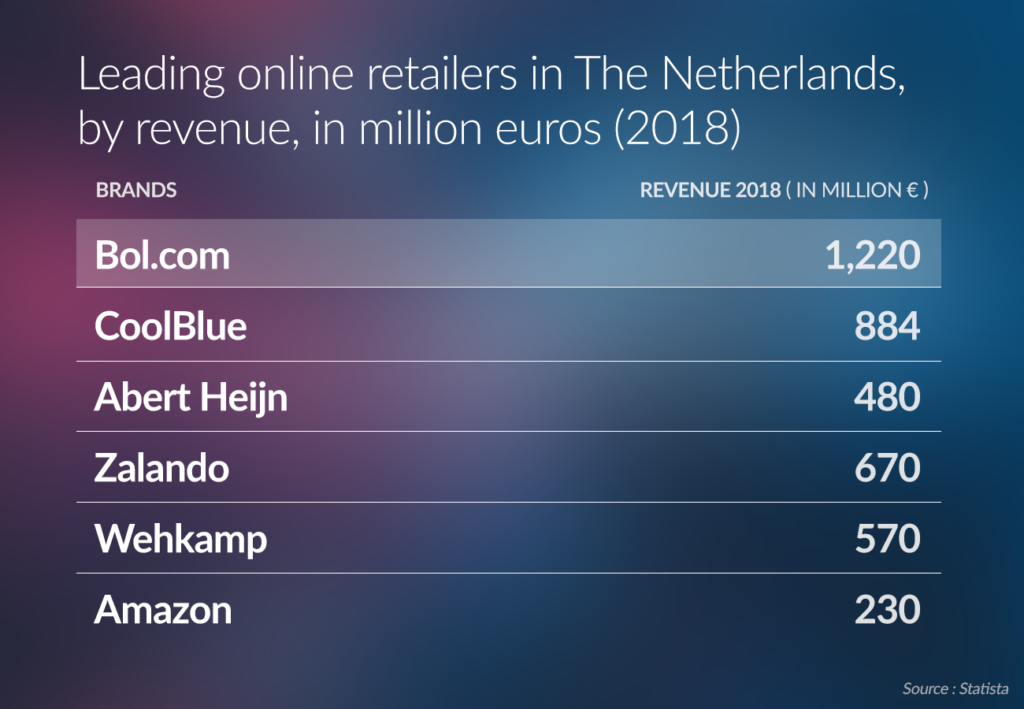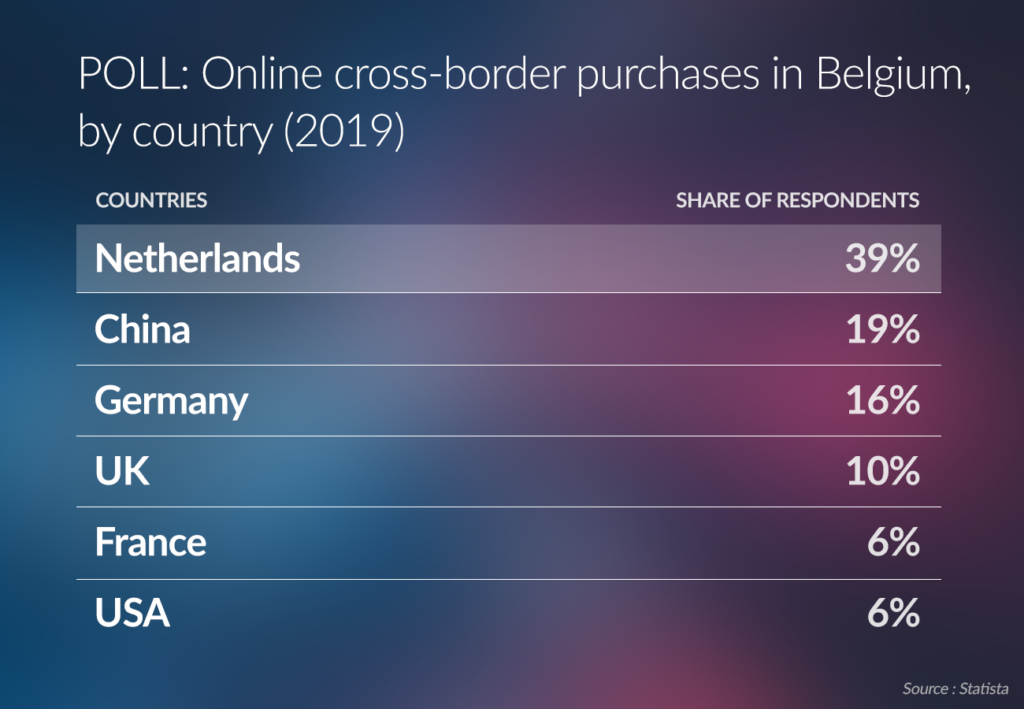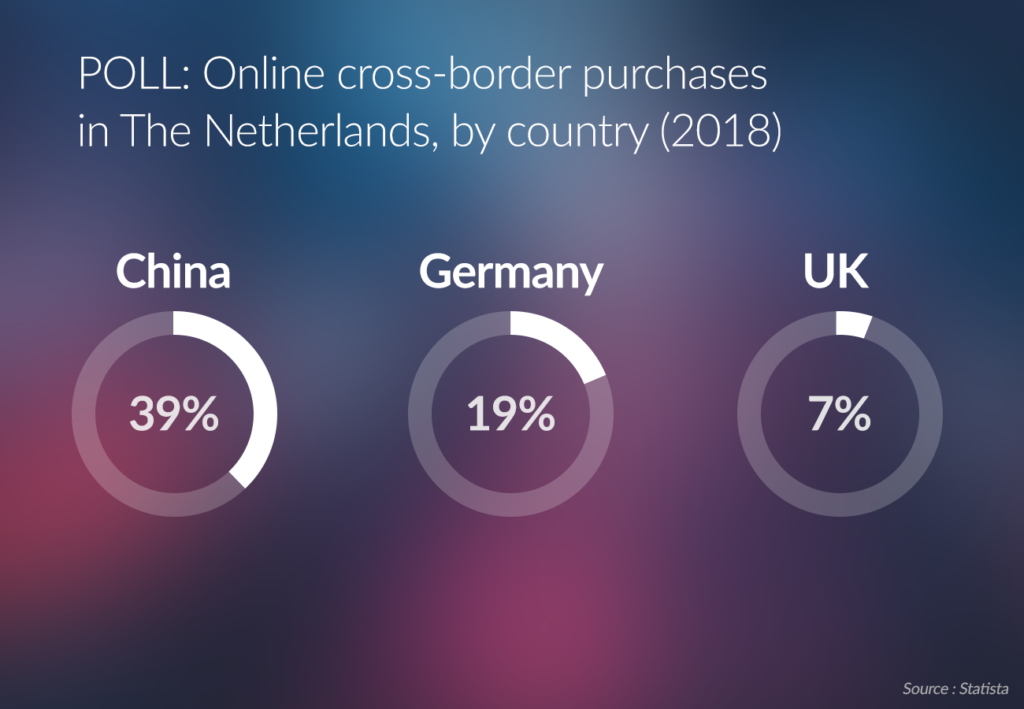What Amazon’s arrival on the Belgian and Dutch markets is going to change

Amazon’s imminent arrival in the Belgian and Dutch markets will undoubtedly stir the two countries’ commerce pot, making some of its ingredients obsolete and adding new flavours to it. But what will this change for users and for all the professionals involved in the commerce of goods, be it online or in physical stores? Here’s our overview of this significant evolution and of the opportunities it offers to brands and distributors in the region.
First up, what’s new for users?
Next week, Amazon will officially launch its Belgian and Dutch branches. Until now, Belgian Amazon purchases were mainly ordered through its French, German and British websites. And in the Netherlands, bol.com, Coolblue, Zalando and other online retailers are still far more popular. In the end, not much will change for everyday B2C customers in the Low Countries. But the stakes will be much higher on the B2B side of the market.

A huge impact on the market?
The sheer size of this global company, and its already vast user base in our countries, means Amazon’s arrival will strongly impact the distribution and retail companies (both online and in bricks and mortar) as well as the brands that rely on them to deliver products to their customers.

Above all, it’s the generalisation of marketplaces as the new cornerstones of commerce that is causing a paradigm shift, rather than just the arrival of Amazon. For context, it’s worth noting that Amazon occupies less than 1% of Dutch online retail revenues, with a market share 4.5 times smaller than bol.com’s.

This move by Jeff Bezos’s company can actually be seen as a defensive one. With such overwhelming competition on the Dutch market and Alibaba setting up its European HQ in Liège, the threat is real for Amazon’s business in the region, especially considering that cross-border B2C purchases show a strong position of Chinese e-retailers.

So, let’s have a look at what this all means for brands on the one hand, and for retailers, wholesale traders, and distributors on the other hand.
Challenges for brands:
• Marketplaces represent a new class of distribution channels that follow operating rules that are very different from those of their other channels – from a much more aggressive push for ‘best deals’ to the quest of sales velocity and optimal competition.
• The efficiency and performance requirements of marketplaces may lead to an erosion of margins or excessive dependency on marketplace volume.
• As consumers expect consistency across channels, marketplaces create additional constraints for brands to coordinate all their channels to present the right offering at the right time, to the right audience, on each channel.
• There is an absolute imperative for the right expertise to manage this space, as traditional distribution channels management is unlikely to work and may backfire violently.

Challenges for retailers, wholesale traders, and other distributors:
• A fierce competition by very aggressive players with models that are profoundly different from those of traditional distribution.
• These new competitors play a different game, with KPIs more focused on return on invested capital than on margin per unit sold.
• Bidding for keywords, online display or advertising inventory becomes almost impossible for smaller players, as large marketplaces can leverage ad investments over a far larger assortment of products.
• The necessity to use other tactics and methods, from optimising in-store experience to providing expert advice and seamless experience across touchpoints.

Overcoming these challenges to seize opportunities
This picture might look grim for brands and distributors, but it doesn’t have to be. As a leader in unified commerce, Emakina is uniquely positioned to address these challenges and help brands and distributors to successfully transition into this updated model.
Through many years of experience in unified commerce and successful deployments of international omnichannel solutions for major B2C and B2B brands and retailers, Emakina has developed a ground-breaking methodology that helps clients make the best of this situation.

Emakina’s marketplace expertise
We engage with all business stakeholders, using state-of-the-art methodologies, from collaborative strategy formulation to design sprints and rapid prototyping, in order to align, design, validate, refine, architect and deliver.
Contact us to meet one of our experts!
The services we bring you:
- business services to deliver digital-first future-proof strategy, tactics and operating models;
- creative services to refine the executive teams’ strategic intent into engaging and appealing experiences for users, both in B2C and in B2B contexts;
- technology services to provide reliable and high-performance infrastructure, tools and processes that support the operating model.
Emakina can help your brands in many ways, such as:
- setting up your presence efficiently on the appropriate marketplaces;
- organising your brand content and all other types of communications on each marketplace;
- defending your territory and fighting rogue resellers, counterfeiters, etc.;
- promoting and supporting your offering with the appropriate strategy and tactics;
- leveraging the media associated with marketplaces and optimising spending across different online media to drive qualified traffic towards your touchpoints and points of sale.
Voir nos derniers articles de blog
Voir tous les articles de blog-
Recommandation – comment construire des boucles de recommandation et transformer vos meilleurs clients en ambassadeurs de marque

-
Revenus : Comprendre la valeur à vie de vos clients

-
Fidélisation – comment construire un modèle de fidélisation efficace et réduire le taux d’attrition

-
3 étapes pour faire passer vos utilisateurs de l’engouement à l’activation


